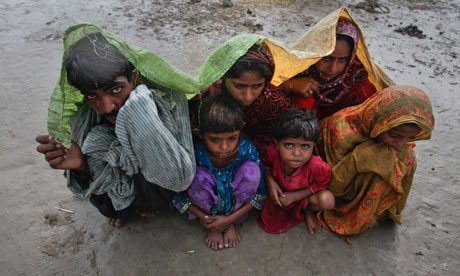The day of prayer for refugees and migrants is 21 June 2015 in New Zealand.
Dear Brothers and Sisters,
Jesus is “the evangelizer par excellence and the Gospel in person” (Evangelii Gaudium, 209). His solicitude, particularly for the most vulnerable and marginalized, invites all of us to care for the frailest and to recognize his suffering countenance, especially in the victims of new forms of poverty and slavery.
The Lord says: “I was hungry and you gave me food, I was thirsty and you gave me drink, I was a stranger and you welcomed me, I was naked and you clothed me, I was sick and you visited me, I was in prison and you came to me” (Mt 25:35-36).
The mission of the Church, herself a pilgrim in the world and the Mother of all, is thus to love Jesus Christ, to adore and love him, particularly in the poorest and most abandoned; among these are certainly migrants and refugees, who are trying to escape difficult living conditions and dangers of every kind.
For this reason, the theme for this year’s World Day of Migrants and Refugees is: Church without frontiers, Mother to all.
The Church opens her arms to welcome all people, without distinction or limits, in order to proclaim that “God is love” (1 Jn 4:8,16). After his death and resurrection, Jesus entrusted to the disciples the mission of being his witnesses and proclaiming the Gospel of joy and mercy.
On the day of Pentecost, the disciples left the Upper Room with courage and enthusiasm; the strength of the Holy Spirit overcame their doubts and uncertainties and enabled all to
understand the disciples’ preaching in their own language.
From the beginning, the Church has been a mother with a heart open to the whole world, and has been without borders. This mission has continued for two thousand years.
But even in the first centuries, the missionary proclamation spoke of the universal motherhood of the Church, which was then developed in the writings of the Fathers and taken up by the Second Vatican Council.
The Council Fathers spoke of Ecclesia Mater to explain the Church’s nature. She begets sons and daughters and “takes them in and embraces them with her love and in her heart” (Lumen Gentium, 14).
The Church without frontiers, Mother to all, spreads throughout the world a culture of
acceptance and solidarity, in which no one is seen as useless, out of place or disposable.
When living out this motherhood effectively, the Christian community nourishes, guides and indicates the way, accompanying all with patience, and drawing close to them through prayer and works of mercy. Continue reading
Sources
- Vatican News Agency
- Image: The Guardian
News category: Features.




